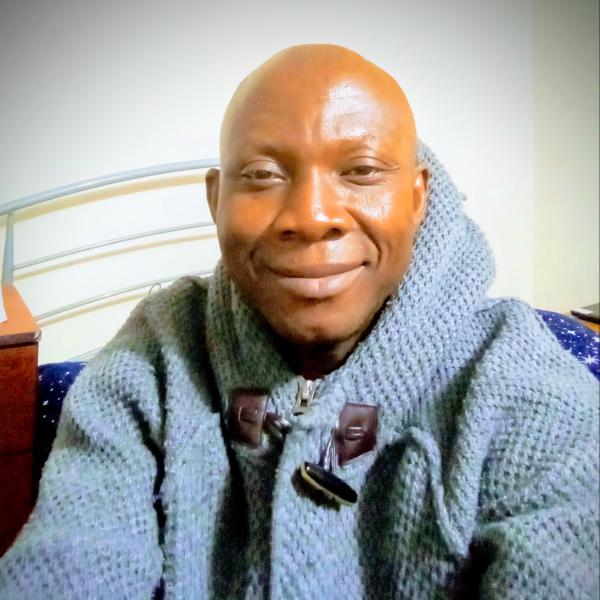Hassan Onimisi Abu
School of Geography and Planning
PhD Candidate


Full contact details
School of Geography and Planning
Geography and Planning Building
Winter Street
Sheffield
S3 7ND
- Profile
-
I have a B.Sc. (Hons) in Geography from the university of Jos, Nigeria in the year 1999 and went back to the same institution for my Master degree in Environmental Resources Planning between 2008 and 2010. I was awarded (MSc ERP) in 2010. I taught in various National High Schools across Nigeria between 2003 and 2015. I also got involved in a Collaboratory research work with my former lecturers at the university of Jos. I was employed at Kogi State University, Nigeria as a Mid career researcher, where I engaged in research and teaching. I have actively participated in research collaboration between Kogi state University and some university in the USA.
I joined the Department of Geography, University of Sheffield as PGR in 2019, to pursue my Doctoral Degree in Human Geography.
Life-Course Approach to Understanding the Relationships Between Forced Migration Trajectories and Food Insecurity/security Path in Central Nigeria
Thesis
This study is, intended to investigate and provide an understanding of complex and dynamic relationships that exist between conflict-induced migration and practices of everyday food insecurity/security. The research specifically focus on how migrants who are, forced to undertake a residential move from one region to another because of conflict experiences seek to manage their food security during and after the migration. The social and cultural belief and practices of migrants, alongside livelihood sources, have the capacity to influence their food-ways and the expected level of food insecurity and hunger to be experienced. This has a potential implication for the scope, choices of food available and food strategies while migrating. The dynamism in preference varieties of food within a household and among the family members may also influence how decisions are, made about food strategies they adopt. Investigating these dynamic and complex interactions between the migrants’ decision-making processes, historical and geographical ties to the origin and destination is very important for solving problems that are associated with force migration such as acute shortage of food and severe hunger and refugee crisis.
Methodology
A qualitative research method is used for this investigation with an in-depth narrative interview employed in order to gain an in-depth understanding of the major concepts and relationships that exist between forced migration and food insecurity in the central region of Nigeria. This will enhance deeper understanding of the magnitudes of food insecurity, on the trajectory along with other problems the migrants experienced while migrating and changes that occurred among the migrants, and to help arrived at a solution through findings with inductive qualitative techniques. Participants who had the experience both men and women were recruited and an interview conducted. The responses were, recorded.
The data collected was in audio format; this was transcribed into Microsoft words textual format. And subsequently imported into the computer-aided program called Nvivo. This Nvivo is a computer-aided software specifically designed for handling and analysing large qualitative data (CAQDAS). This computer program is quick, efficient and comprehensive in the management of large qualitative data. It has various features that helps in rapid grouping of the data with an instrument of coding and allowing themes and categories to emerge with ease. The themes generated were analysed and interpretation provided and the findings emerges.
Research Aim
In trying to find out the social rhythms and changes in food strategies during and after a forced migration this study will seek to uncover the sequence of events at different points and time along the life course of those who undertake a forced migration. In particular, it will examine how these life-course decisions are; interlinked with decisions connected to food insecurity/security and food strategies.
The research will draw on an in-depth narrative interview with people who have undertaken a conflict induced forced migration to achieve this aim. The interviews will cover the experiences of the initial migration and trace their life paths for up to twenty years.
Supervisors: Dr Megan Blake and Dr Matt Watson
